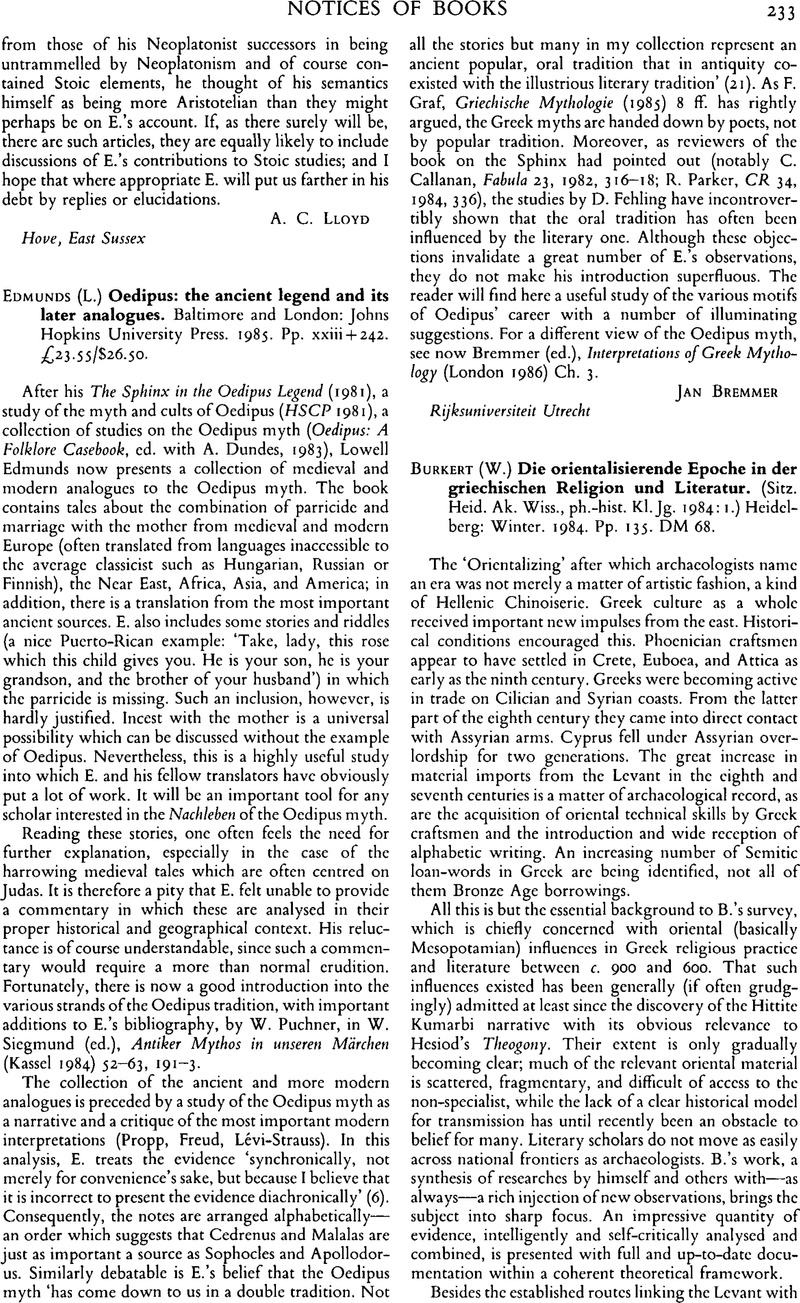Article contents
(W.) Burkert Die orientalisierende Epoche in der griechischen Religion und Literatur. (Sitz. Heid. Ak. Wiss., ph.-hist. Kl.Jg. 1984: 1.) Heidelberg: Winter. 1984. Pp. 135. DM 68.
Review products
Published online by Cambridge University Press: 11 October 2013
Abstract

- Type
- Book Review
- Information
- Copyright
- Copyright © The Society for the Promotion of Hellenic Studies 1986
References
1 Add that the ‘navel of the earth’ is a Semitic concept (W. H. Roscher, Omphalos (1913–18/1974); M. Eliade, Shamanism 268), and that the oriental Succession Myth reached Hesiod by way of Crete and Delphi.
2 Further, Gilgamesh feels to see if Enkidu's heart is still beating. There is no such doubt in Patroclus' case, yet Achilles lays his hands on his friend's chest, for no clear reason (Il. 18.317). B. does not actually mention this, or the lioness simile. There are other things he might have mentioned, such as the Phoenician ‘Cyclops’ ( Poljakov, T., ZPE 53 [1983] 95–8Google Scholar) and Aphrodite with her necklaces ‘shining like the moon’ before her lover (h.Aphr. 89/Hymn to Inanna: A. Henrichs, Die Phoinikika des Lollianos [1972] 22).
- 1
- Cited by




